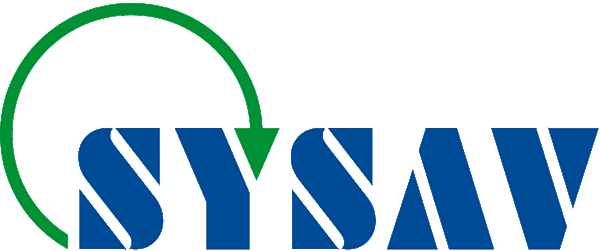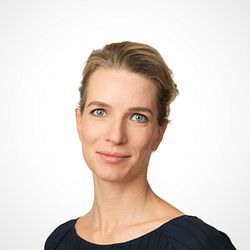
Pressmeddelande -
The Swedish Energy Agency grants funding to develop carbon dioxide infrastructure in southern Sweden
The Swedish Energy Agency grants SEK 5.3 million to develop carbon dioxide infrastructure in southern Sweden
Malmö CO₂ Hub, a collaboration between several industrial and energy companies in southern Sweden, has been granted SEK 5.3 million in funding from the Swedish Energy Agency under the Industriklivet programme. The project aims to develop a shared regional infrastructure for the transport, storage, or utilisation of carbon dioxide (CCUS).
Malmö CO₂ Hub brings together key players in energy, port logistics, and waste management: Sysav, Copenhagen Malmö Port, E.ON, Nordion Energi, and Uniper, with support from Växjö Energi and Öresundskraft. The funding will be used to carry out an in-depth feasibility study on a joint carbon dioxide infrastructure in southern Sweden, covering both transport and final geological storage. The study is expected to be completed in June 2025.
Collaboration to reduce costs and enable broader participation
By establishing a shared system for the transport and storage or utilisation of carbon dioxide, companies within the CO₂ Hub can share investment costs. This approach will make CCUS more economically accessible, thereby accelerating emission reductions. The goal is to develop a sustainable CCUS infrastructure that is open to additional participants.
“By collaborating on CCUS infrastructure, we can deliver significant climate benefits for both industry and Sweden as a whole,” says Henrik Norgren, Project Manager. “The project creates economies of scale and reduces costs for all participating companies, helping us contribute to Sweden’s climate targets. The support from the Swedish Energy Agency and our partners makes this possible and provides a model for other regions to follow.”
A solution for sustainable industrial development and climate transition
Carbon capture has been identified as a key component in achieving the climate goals set by Sweden and the EU. The project aims to establish Malmö as a hub for carbon logistics, where CO₂ can be collected and transported for permanent storage — for example, in Norway or Denmark.
Together, the partners in Malmö CO₂ Hub are working to build infrastructure that enables the capture and storage of 1–2 million tonnes of carbon dioxide annually. This would contribute to negative emissions and support more sustainable industrial production in Sweden.
Facts: CCUS – Carbon Capture, Utilisation and Storage
CCUS refers to technologies that capture carbon dioxide emissions from industrial sources and power plants to prevent them from being released into the atmosphere, thereby mitigating climate change. The process involves three main stages: capture, transport, and storage or utilisation of carbon dioxide. The CO₂ can be captured directly at the emission source or from the atmosphere, transported to an interim site, and then stored permanently underground in geological formations such as depleted oil or gas fields. Alternatively, the captured CO₂ can be used as a raw material for fuels or new materials. CCUS is a key technology for achieving climate goals, particularly in sectors where emission reductions are difficult to achieve.
Facts: CNetSS
Malmö CO₂ Hub builds on the earlier CNetSS collaboration, which has the long-term goal of increasing the potential for emission reductions and achieving negative emissions.
In Phases 1 and 2, partners included Sysav, Copenhagen Malmö Port (CMP), E.ON, Växjö Energi, Öresundskraft, Nordion Energi, Kraftringen, Höganäs, Kemira, and Stora Enso. These phases identified the Port of Malmö as the most suitable location for an intermediate CO₂ storage facility and established timelines, capacities, and transport methods for participating companies.
The project, supported by Industriklivet, also defined the physical requirements for storage infrastructure.
Phase 3 is led by Nordion Energi, focusing on developing the business model, technology, costs, and legal framework ahead of procurement for a system solution.
Facts: Industriklivet
Industriklivet is a Swedish government initiative supporting the green industrial transition. Through the programme, the Swedish Energy Agency can provide funding for feasibility studies, research, pilot and demonstration projects, and investments across various sectors.
For 2024, Industriklivet has a budget of SEK 1.457 billion and can finance projects running until 2031.
Kategorier
Sysav är ett miljö- och återvinningsföretag som tar emot, behandlar och återvinner avfall från hushåll och industrier. Sysav skapar värde för samhälle och kunder genom en hållbar resurs- och avfallshantering. Vi återför värdefulla resurser och återvunnen energi och bidrar på så sätt till minskade koldioxidutsläpp och uttag av jungfruliga råvaror. Vi verkar för ett samhälle med cirkulära flöden, hållbar produktion och konsumtion, där onödigt avfall inte uppstår. Vår vision är att vi ska bidra till att skapa världens mest hållbara region, för denna och kommande generationer - tillsammans med våra kunder, samarbetspartners och invånarna i våra 14 ägarkommuner.

